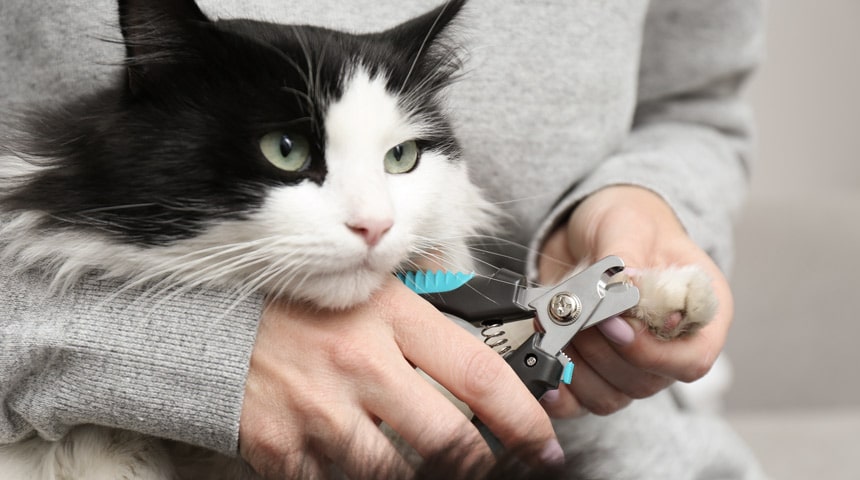
Scratched floors, damaged furniture and scrapes caused by your fur baby’s claws... It might be time to trim them! This can sometimes be easier said than done. See the 6 tips below to make your job easier!
Accustom them young:
The ideal time to introduce claw trimming is when the animal is in their learning period, when they’re young. As a result, they will get used to it quickly and will be more easily handled into adulthood. If the cat is no longer a kitten, you can still do it – just go slowly, one step at a time. You must first get them used to having their paws and claws handled at different times throughout the day (naptime, meals, play periods, etc.). Then gradually introduce nail clippers. You can start by trimming only one claw at a time and eventually, you will be able to trim all of them in one session.
Above all, stay calm:
An animal can feel your emotions, including stress. Prioritize a quiet time in the day and try not to be nervous, otherwise your anxiety will be transferred to your cat. During the process, talk to your animal and do positive reinforcement, it can only be beneficial!
Guillotine or nail clippers, which one to choose?
If you are not a pedicure professional, we strongly recommend that you use nail clippers, as the guillotine requires more precision and care in immobilizing the claw between both blades. Nail clippers will allow you to hold your cat’s claw without over-cutting, in addition to being equipped with a spring that will allow you to keep the clamp in the open position, making cutting more effective.
Know where to find the right part of the claw:
Feline claws have two parts: dead keratin and live keratin. The latter has nerve endings and blood vessels. As you can imagine, you must never reach the living section because you don’t want to hurt your companion and cause bleeding. If your animal has white claws, you will be able to distinguish their two parts easily, because one will be pinkish (living keratin). On the other hand, if Kitty’s claws are black, you just have to be more careful and cut the claw millimetre by millimetre from the tip. To know where to stop, you should be able to detect a change in texture and colour in the middle of the claw.
Filing:
Once the trimming process is finished, you can finalize the pedicure with a file. This step is not mandatory but will prevent your cat’s freshly cut claws to hurt you or catch on your clothes.
Reward your cat:
Remember, the pedicure itself is not fun for your cat. If he has behaved well, consider offering him a little treat to encourage this behaviour in the future.

